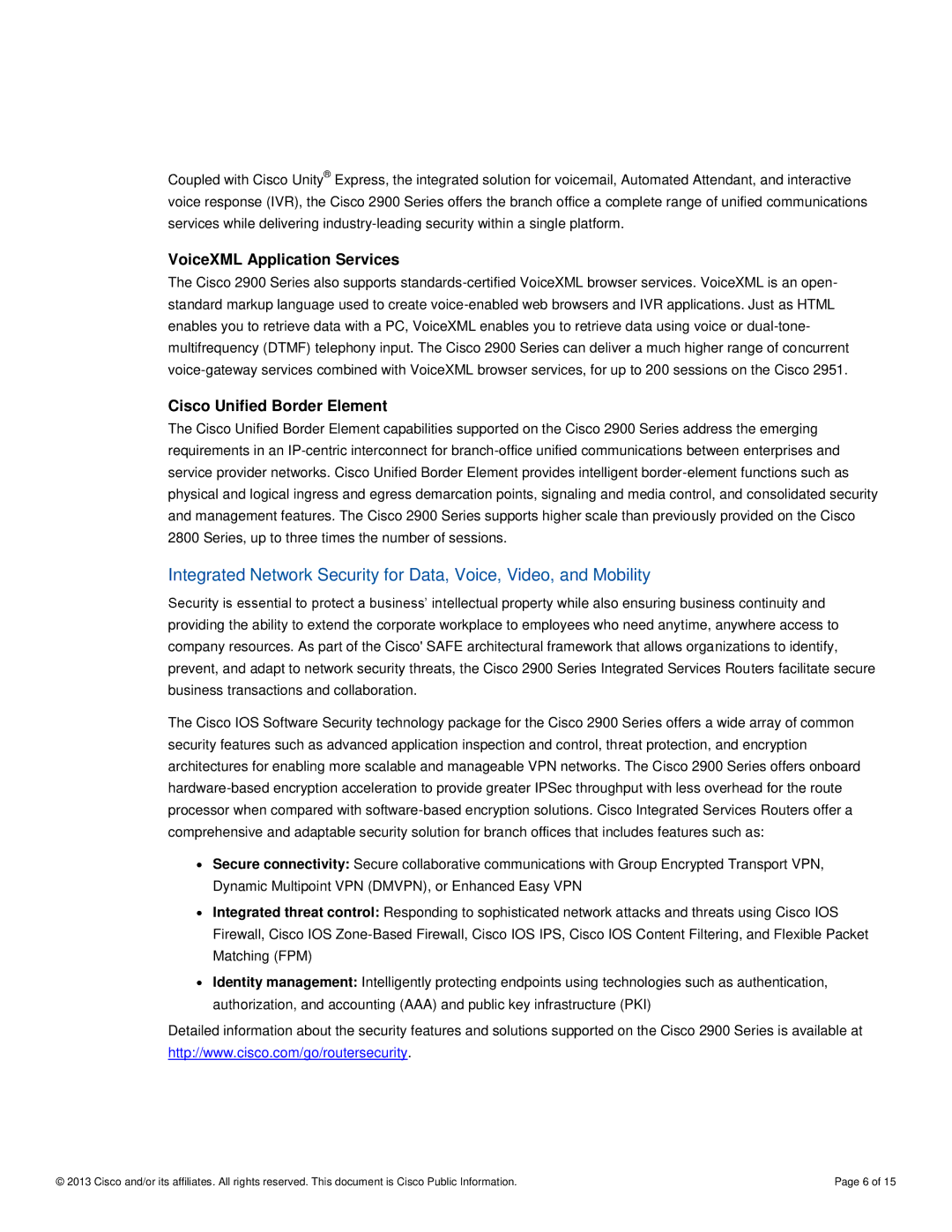CISCO2901VK9, CISCO2911K9 specifications
Cisco Systems is a global leader in networking and cybersecurity solutions, providing a comprehensive range of products and services to meet the dynamic needs of businesses. Among its notable offerings are the CISCO2911K9 and CISCO2901VK9 routers, which are designed to enhance network performance and security for small to medium-sized enterprises.The CISCO2911K9 is part of Cisco’s Integrated Services Router Generation 2 (ISR G2) series, offering high performance and versatility for a range of applications. One of its key features is its modularity, allowing network managers to easily upgrade performance capabilities as organizational demands evolve. The router supports multiple WAN connectivity options, including Digital Subscriber Line (DSL), 4G LTE, and Ethernet, making it an ideal choice for businesses with diverse networking needs.
In addition to its connectivity options, the CISCO2911K9 provides robust security features, including advanced encryption and firewall capabilities to protect against cyber threats. It also supports Cisco's Security Intelligence Operations (SIO), which continually updates security protocols to defend the network from emerging threats. The integrated voice processing capabilities make it suitable for organizations looking to consolidate their voice and data communications, enhancing operational efficiency.
On the other hand, the CISCO2901VK9 is another member of the ISR G2 family, designed for cost-effective yet robust connectivity. It features dual WAN ports for enhanced reliability and failover capabilities, ensuring uninterrupted connection to the internet. Like the CISCO2911K9, it also supports numerous WAN technologies for maximum flexibility.
The CISCO2901VK9 is particularly geared towards small businesses that need a reliable router without the complexity of larger enterprise systems. It offers comprehensive security features including Cisco IOS firewall and VPN capabilities, ensuring secure data transmission for remote workers. The router is also equipped with Voice over IP (VoIP) features, enabling efficient communication and collaboration across the organization.
Both routers support Cisco’s Smart Business Architecture, which simplifies IT deployment and management while providing seamless integration with existing systems. They also excel in energy efficiency, thus reducing operational costs for businesses seeking sustainable solutions. Overall, the CISCO2911K9 and CISCO2901VK9 present an excellent combination of performance, flexibility, and security, making them ideal choices for organizations looking to scale their networking capabilities.
